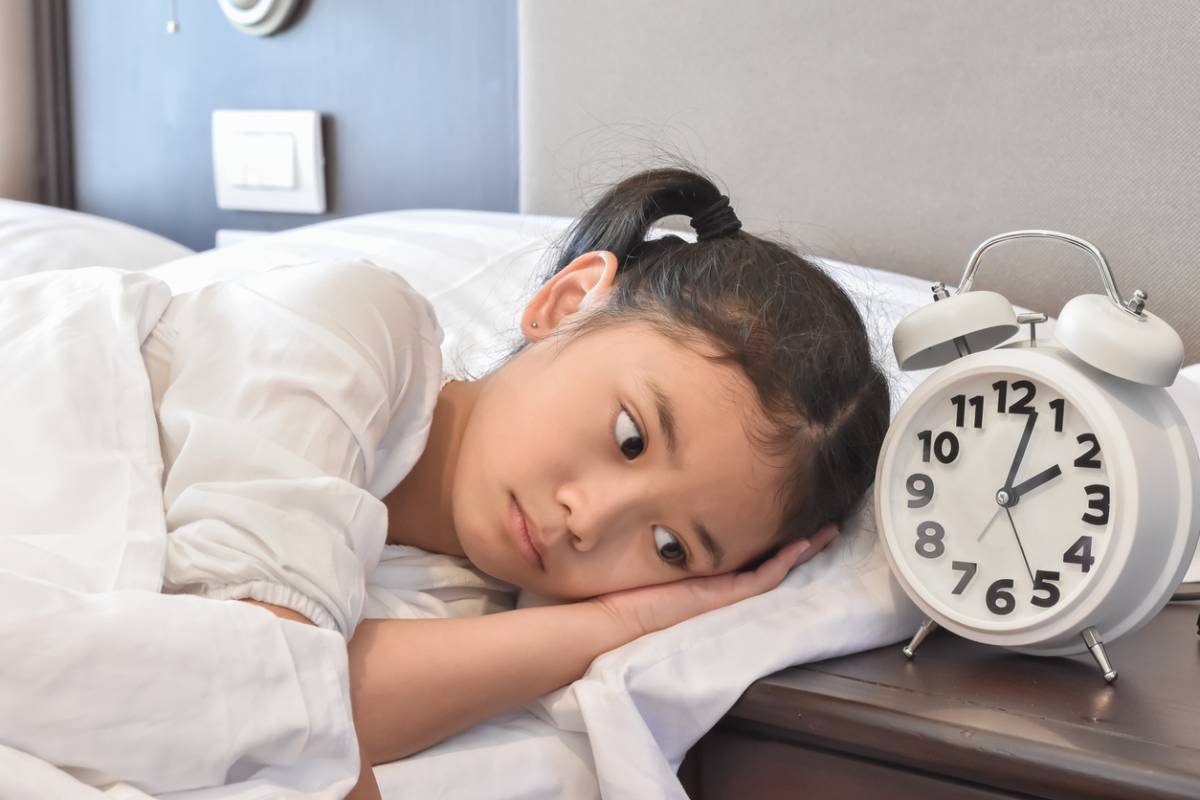It isn’t a secret that many children struggle to fall and stay asleep. They have active imaginations that often tie into their own fears and anxieties once they’re alone in the dark. A child in this state is understandably likely to struggle with falling asleep because their natural instincts tell them to stay alert for their own safety. But can children have insomnia?
Can Children Have Insomnia?
This experience is usually the worst in between the toddler years and the “age of reason” (around 7 or 8 for most children). That is because they are more aware of their surroundings but not quite capable of rational thought. To a five-year-old, hearing the creak of the stairwell could easily indicate the presence of a monster from their nightmares. Their brains haven’t developed enough to understand that their imagination doesn’t always coexist with reality.
Unfortunately, the lack of monsters in your home doesn’t mean your child will automatically get the sleep they need. In order to stay healthy and happy your child your child needs to meet their age-appropriate sleep goals as often as possible. If your child is consistently struggling to sleep and showing signs of sleep deprivation, then you should look into pediatric sleep care in New York.
Age Appropriate Sleep Goals
As your child grows up, their sleep goals will change. To achieve a balance of sustained sleep at night and daytime naps, you should try to make sure you’re adjusting this balance according to what your child needs as they age. These are the suggested daily sleep goals for each major age group.
- 4-12 Months: 12-16 Hours
- 1-2 Years: 11-14 Hours
- 3-5 Years: 10-13 Hours
- 6-12 Years: 9-12 Hours
- 13-18 Years: 8-12 Hours
Signs of Sleep Deprivation in Children
Every child is different, making it difficult to tell when your child isn’t getting enough sleep. However, there are some key behavioral traits that you can look out for once you start to suspect that your little one is missing out on some very important “ZZZ’s.” Once you know their tell, it will be much easier to ascertain how often your child isn’t getting enough sleep. Watch out for:
- Hyperactivity (it may seem counterintuitive, but some children react this way)
- Difficulty waking up in the morning
- Crankiness with mood swings or excessive tantrums
- Falling asleep during car rides
- Difficulty concentrating at home or at school
- Falling asleep outside of their normal sleeping hours
When to Ask for Help
If your child is demonstrating symptoms of sleep deprivation multiple times a week for more than a month, you should talk to a pediatric sleep doctor. Fortunately, your local asthma doctor in New York has dedicated his career to ensuring that your children can sleep soundly and safely. With a little bit of patience and observation, your pediatric sleep doctor can help you to figure out ways of treating your child’s insomnia.
In many cases, the cause is totally benign. Your child’s doctor can coach you on how to make your child’s sleeping experience more comfortable. However, in the off case where there’s a more serious issue like discomfort as a result of allergies or a chronic sleep disorder, you and your child’s doctor will be able to find preventative actions and treatments that will allow your child to finally have some sweet dreams.
With a little persistence, your child will eventually find a treatment plan that works for them. Finally, you will rest easy knowing that they’re getting the sleep their brain and body need to grow.

